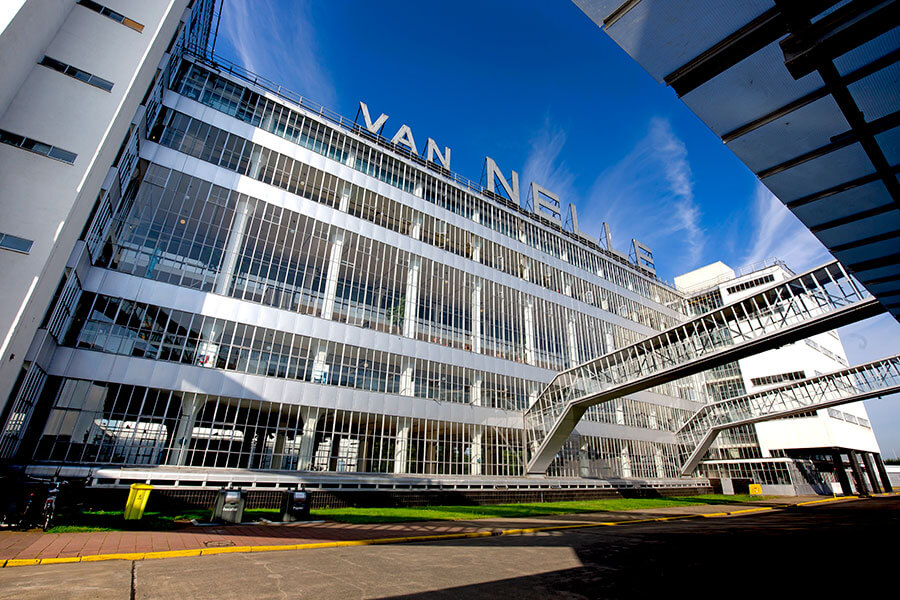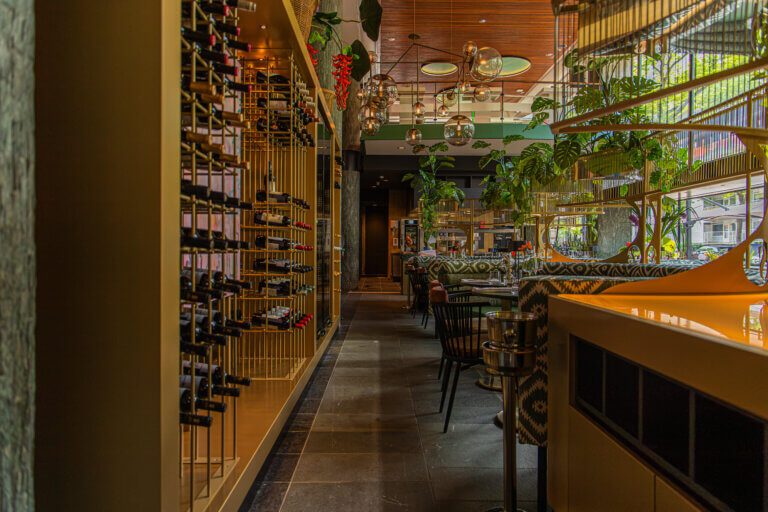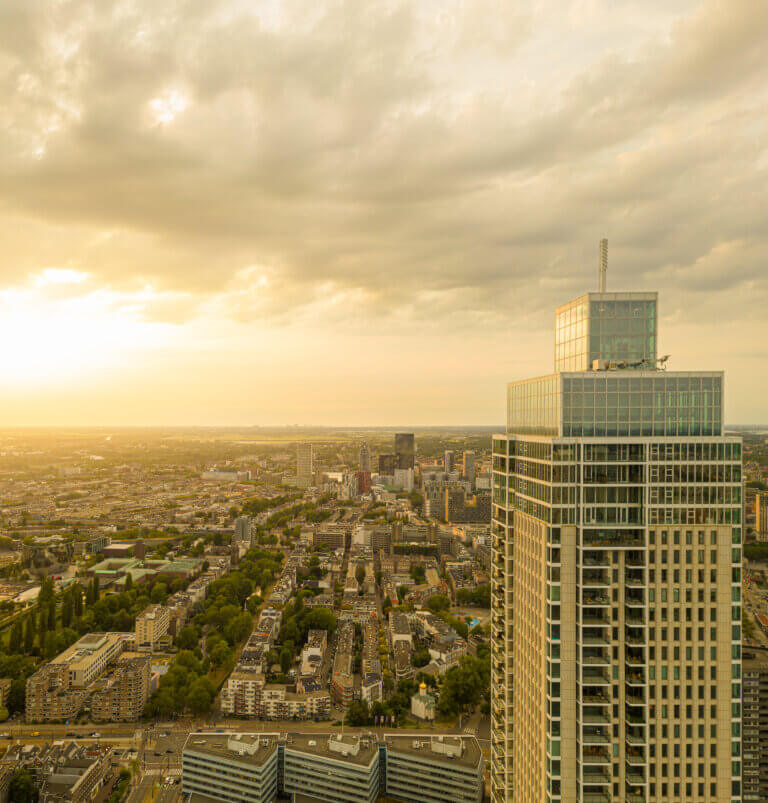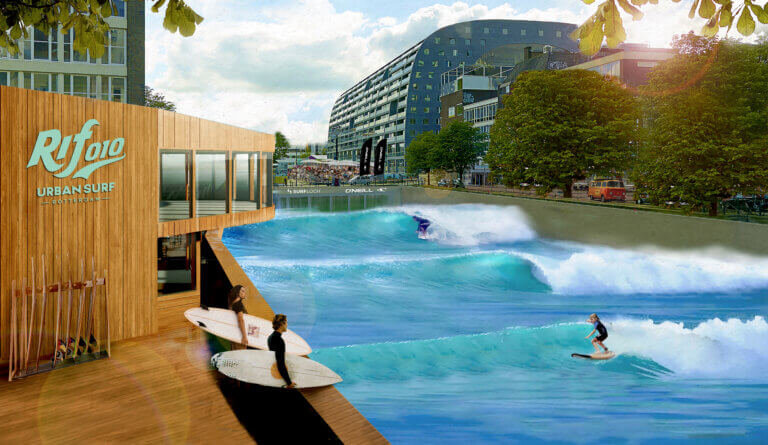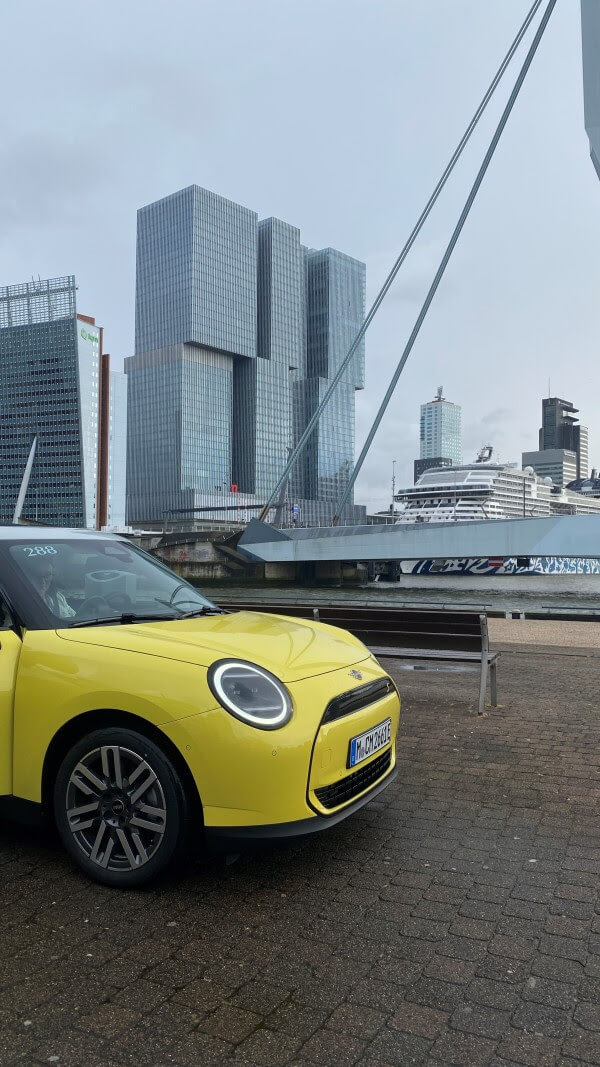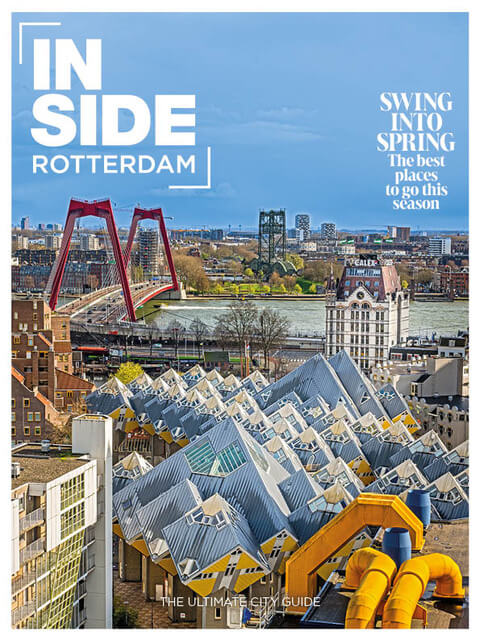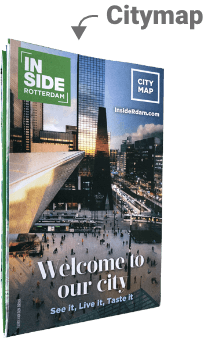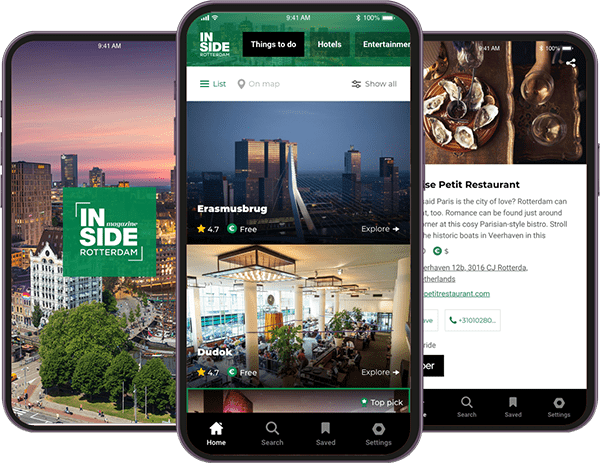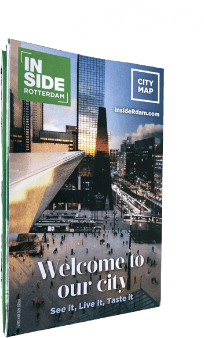Building the factory of the future
Arriving in Rotterdam by train, it is hard to miss the big, bright neon letters that spell ‘VAN NELLE’ on the roof of a white, shiny factory. The aluminium paint lights up in the sun and the façade stretches far into the back like a seemingly endless wall of steel and glass. It becomes instantly clear why prominent architect Le Corbusier described the factory as “the most beautiful spectacle of the modern age” shortly after it was built. Because of its place in architectural history, it became a UNESCO World Heritage Site in 2014. And even now, many years after opening in 1928, its design still impresses anyone who sees it. Architect Meindert Booij’s career is linked with the building in more ways than one, and he loves it for all it is. “The Van Nelle factory is not perfect,” he says, “but it is definitely unique in its design, technique and social function.”
Words: Jasmijn Lobik
A special collaboration
The Van Nelle Factory was designed by architectural duo Brinkman and Van der Vlugt, the same firm that designed football stadium De Kuip. Nowadays, the firm is called Broekbakema, and Meindert Booij is one of its senior architects and former board member. Booij designed a prize-winning coffee silo in the centre of the monumental site and was involved in the re-purposing of the factory. It is no wonder he knows the building and its history so well. “It was a great opportunity for Jan Brinkman and Leen van der Vlugt,” he says. By then, Van Nelle was owned by the Van der Leeuw family, and Kees van der Leeuw was in charge of the project. “He wasn’t the stereotypical businessman. He supported the Theosophical Movement and was an idealist and artist. When he was supposed to be training, they would find him in the desert, painting. It is part of the reason the project became so progressive. Van der Leeuw wanted the Van Nelle factory to be different from the others. It had to be unique, modern and most of all, a great workplace. They were going to build the factory of the future,” Booij says.
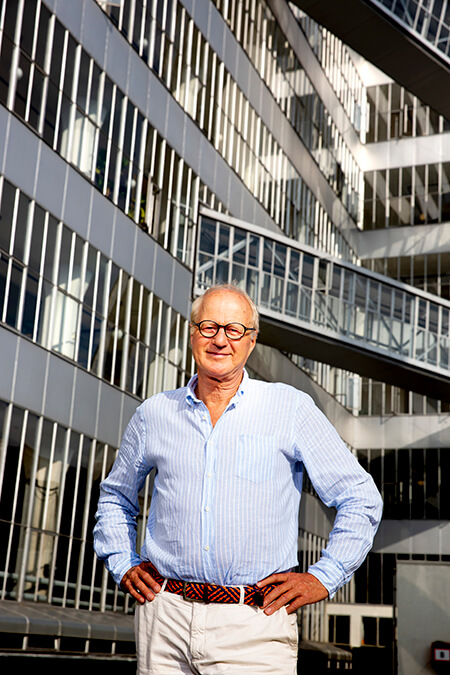
From brick to glass
The firm Broekbakema is currently situated at the Van Nelle Factory. That is why, while having coffee at his office, Booij can easily point out the many ways architects Van der Vlugt and Brinkman created something unique. “In the past, factories used to be brick buildings with little fresh air and light inside. For Van Nelle, they used innovative techniques to create the light, functional space they aspired. When you look up here, you can see the columns become slightly wider at the end. This enables the floors to be flat, as to not waste space and let in as much light as possible.” He also points out the hinges in the middle of the windows, which allowed them to be open longer and more often. “You can probably imagine how much that added to the working atmosphere.”
Heart for workers
From the start, Brinkman and Van der Vlugt made the workers a central component in their design. “At the time, the factory’s sanitary facilities were better than most people had at home, such as hot water coming out of the showers.” They created a factory that was as efficient as possible, with little distance between the different production stages. “Transportation was done by using conveyor belts or gravity, as to spare workers from hard labour.” And that wasn’t all: the terrain included a modern office garden, cafeteria and football field for the company team to play on. “It shows they took the mental and physical health of their employees seriously at a time when this wasn’t a common part of business management.”
Eye-catching design
Of course, the most eye-catching part of the Van Nelle factory is its modern façade, called a ‘curtain wall’ in architectural jargon. “It is just steel and glass, unique in the Netherlands,” says Booij. It is inspired by architectural style Bauhaus in Germany and modern buildings in the United States. The Van Nelle factory, like the foreign buildings it was inspired by, favours function over shape. It is sober with geometrical shapes, flat roofs and the use of modern materials. Booij also mentions some quirky details such as a tiny staircase on the roof that looks like it was randomly planted there, and the bridge that doesn’t quite “fit”. “I find it interesting to see how the design is clean and messy at the same time,” he says. “For me, it is those little imperfections that make it special.”
The future of the factory
Even though steel and glass make for a very impressive façade, it also comes with a price. Literally, since the Van Nelle factory needs to be constantly maintained. Luckily, the factory got a new owner two years ago, something Booij is very pleased with. “It is great that someone is up for the adventure. They’ve hired us as the architects for the renovations again, which kind of feels like we’ve come full circle.” The new owner has a lot of plans for the factory, and Booij feels the building is definitely worth it: “This building has been erected with pure logic and good taste, a combination that makes it timeless.”
